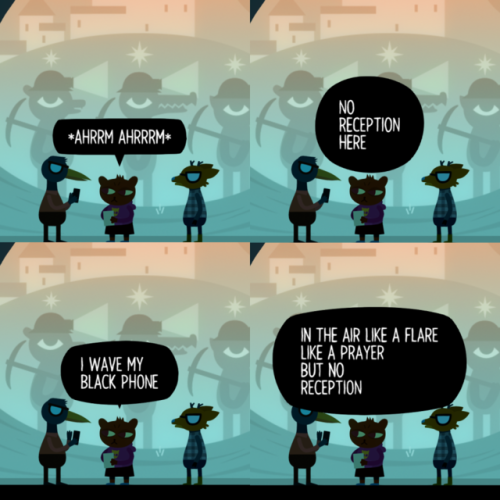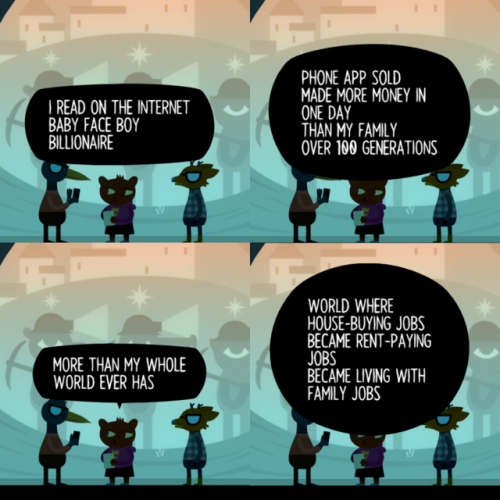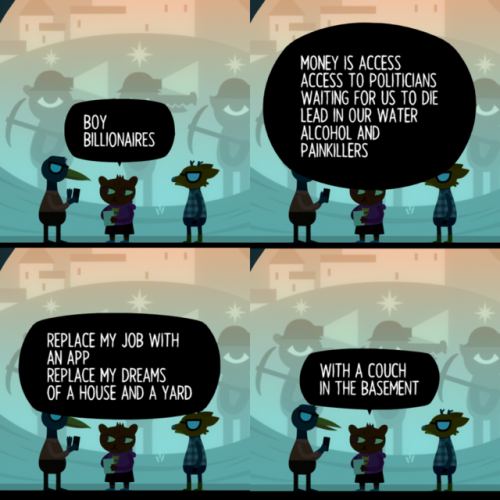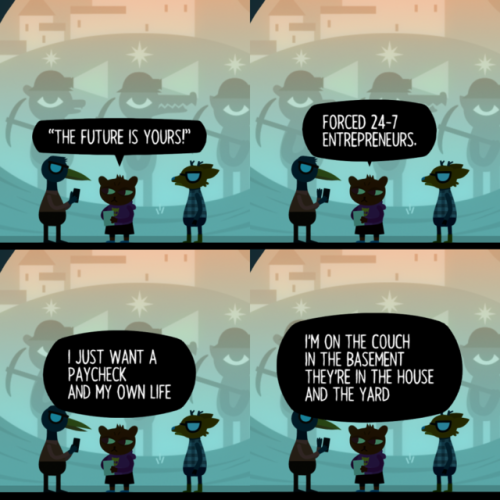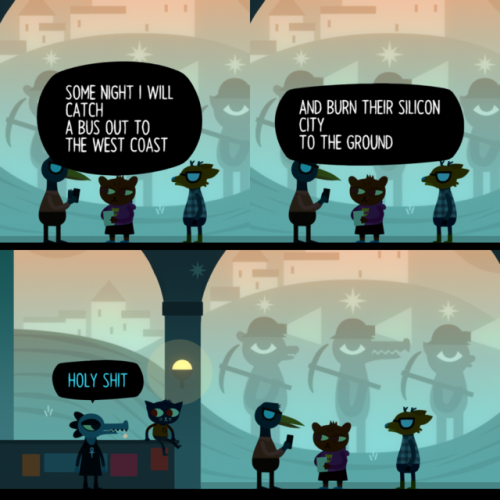Eeeeeee I Love It!:D
Eeeeeee I love it!:D
I've got another sketch idea for you: Kuvira as Captain Kirk, and Bataar as Spock! (It's a bit of an in-joke; Todd Haberkorn, Bataar's VA, also played Spock in the online fan series "Star Trek Continues".)

Daily Kuvira #30 - NEEEEEEEERRRRRDs
You can tell this was Baatar’s idea.
Also bonus from my fav podcast:
More Posts from Nesterov81 and Others
As someone who has an interest in sf/fantasy depictions of WWI, I’ve been puzzling for years as to why authors dabbling in steampunk have been reluctant to tackle the conflict. My own theory is that steampunk is, at heart, an American creation, and the Great War is an event that has mostly vanished from the American consciousness. For most American writers, steampunk is a fantasy world set in an imagined version of 19th-century Britain or America which draws more from other stories than from reality, and the question of international politics and war doesn’t really come into it. That said, I have found British authors working in steampunk to be far more willing to broach the subject of World War I, both because the war had such a huge impact on the British national psyche, and because it ties into the greater question of what Britain is, its relationship to the empire, what role Britain has in the world after empire, and so on. As for examples, two authors stand out to me. While a hard sf writer by trade, Stephen Baxter’s steampunk excursions always seem to be haunted by the war. His 1993 novel Anti-Ice is for the most part a romp about a 19th-century excursion from the Earth to the Moon thanks to the titular substance, an exotic form of antimatter. However, by the end of the book the use and exploitation of anti-ice has led to Britain, France, and Germany locking themselves into a Cold War-style nuclear arms race. His 1995 book The Time Ships is a sequel to the The Time Machine that riffs in all manner of ways on HG Wells’ work, but the middle third of the book is set in an alternate 1938 where the First World War has dragged on for decades, transforming Britain into a dystopian state influences by Wells’ most pessimistic views. (While I haven’t read Baxter’s 2017 followup to The War of the Worlds, entitled The Massacre of Mankind, some of the elements I’ve seen, like a police-state Britain and a bloody Russo-German war in Eastern Europe, suggests that the Martian invasion of the original book has become the Great War of the sequel’s world.) For something a little more literary, Ian R. MacLeod’s Aether duology, The Light Ages (2003) and The House of Storms (2005), is set in an England where a magical substance called “aether” has locked the country (and by extension the rest of the world) in a sort of static industrial revolution for centuries in some ways reminiscent of Keith Roberts’ Pavane (1968). Change does eventually come to this static eternal England, sadly in the form of a civil war whose depiction draws heavily from that of the Western Front.
I didn’t include it in the list of favorite stories because I like it more in idea than in execution, but Caitlin R, Kiernan’s story Goggles really hit me hard. She says it was her idea of where all steampunk is leading, but most authors don’t want to admit: the conflict that became World War I in our world destroys the steampunk world in technologically advanced nuclear fire. I read it yesterday and I can’t get the concept out of my head.
You’re not an awful person, Madiha. You’re passionate about what you believe in and you stick to your principles, but you’re always willing to be open-minded, which is so hard to do in this day and age. That doesn’t sound like a bad person to me. I am probably the last person who should be an amateur counselor, but remember: those negative thoughts you have are not. true. They are years of insecurity and fear twisted by depression into a cudgel that give you a false view of reality and convince you that you deserve to be unhappy. Nothing they say is true.
We do not think that way about you.
You deserve to be happy. You will be happy. Whenever those thoughts start to roll in, remember that they are do not reflect reality and they are lying to you. Hold on to that. (This is really weird for me to write, but it tears me up to see you burdened with so much and know there’s almost nothing I can do about it.)
im really afraid im just a like, completely awful person but just utterly deluded in my own goodness that i dont see why everyone hates me
reblog if you remember what it felt like to walk into blockbuster
I’m both disgusted and entertained. Of course, as both a Simpsons fan and a sadist, I have a challenge for you: * Cloves * Tom Collins mix * Frozen pie crust
Dooooooooooooooo it.
Finally. The great taste of Worcester Sauce in a soft drink!
(and I know. It’s pronounced “Woostah”)
I have to admit, I liked the conceit of Suyin being on the side of our heroes despite not actually being a good person herself, but I feel like the Suyin/Kuvira conflict was mishandled, in large part because Bryke couldn’t decide whether Kuvira was a well-intentioned hardliner who went a little too far in places or Hitler with geomancy powers. The way I see it, when Suyin refused to take any role in stabilizing the Earth Kingdom, she essentially threw away Zaofu’s one chance to influence events in the civil conflict(s) and left its fate to the whims of chance. By the time Book 4 rolled around the question was not if, but when Zaofu would be annexed. Even so, I’d argue that Kuvira considered Zaofu to be the spiritual home for the new modernized Earth Empire she wished to create, and as such may have been prepared to offer a sweetheart deal to Zaofu in exchange for its peaceful entry into the empire. Of course, if they when with that deal, Suyin wouldn’t be top dog of her own little modernist fiefdom, so Suyin attacked Kuvira under cover of truce, placing the safety of her citizens and their accomplishments in jeopardy because her pride had been stung. And this would have been great, dramatic stuff if Bryke had acknowledged it! Have Kuvira annex Zaofu, but have Korra and gang hold Suyin responsible for escalating the conflict. Heck, have her escape with them, then have them worry about the repercussions of their actions on Kuvira’s strategic goals, the United Republic’s diplomatic relationship to the Earth Empire, and with whatever the hell Suyin’s doing with the anti-imperial exile groups in Republic City. But instead of that, Bryke made Suyin the victim, Kuvira the tyrant, and we ended the show with a giant mech with a death laser. If there’s one thing Korra taught me about writing stories, it’s this: if you want to be political, commit to your premise. Consider the implications, and follow them through. If you pull up and settle for half-measures, you’ll make a farce of the whole thing.








She was more than that. She was like a daughter to me. I took her in when she was eight years old and nourished her talents. Kuvira was smart, a natural leader, and quickly rose through the ranks. I saw myself in her.
I must confess that one of the things I’ve always found interesting about Kuvira is how she expresses her gender identity within her role as the head of a revolutionary nationalist army. After all, modern military hierarchies tend to be drenched in masculinity even when they attempt to be egalitarian. At the same time, while revolutions offer the possibility of dissolving old roles and limits on behavior, they also tend to keep a few and develop some of their own. (There’s also the whole issue of how right-wing movements tend to describe the order they are rebelling against as “decadent” and effeminate, while their own movements offer a “healthy” masculine alternative. Of course, Korra never dug too deeply into the gender dynamics of Kuvira’s army, so any speculation would on this would essentially be building castles in the sky. What I can say, though, is that I’ve always felt Kuvira’s character design was harkening to this idea of what you could call “the soldier as woman.” She dresses and presents herself in such a way as to show that she and her army are one, even to the point where the only major difference between her and her soldiers is her collar and the armor on her upper back. At the same time, she isn’t trying to erase her gender and appear masculine/androgynous. She even keeps her hair long and tied up in a bun rather than shaving it off or going for the army-standard undercut. I think all this is what people have been getting at with this “butch/femme” discussion, but I don’t think that’s the best way to look at this particular issue. All that said, I’m not exactly a fan of this outfit from the upcoming comic.

I’ve always seen Kuvira as a woman with a rather austere sense of dress. As I pointed out above, instead of wearing a uniform with gold braid, sheets of medals and ribbon, or a cape and pauldron with elaborate armored segments like in her concept art, she wears a uniform that’s basically the same as every other one in her military. While this outfit isn’t too flossy or “femmy,” the tailoring, color coordination, and that big belt buckle feel a little too...well, bourgeois for Kuvira. It’s simple, yes, but it’s still an outfit you have to put together when you get up in the morning. Personally (and this is just my inner dirty socialist talking), I could easily see Kuvira rocking the zhongshan (”Mao”) suit, or something more akin to the military tunics Stalin wore in the 1920s and 1930s. (Hmm...Jenros, I think I have a Kuvira picture I’d like to pitch to you...)


Question: Why do people call Kuvira butch? Because she has muscle and doesn’t wear dresses or some shit? Are all women with muscle a butch?
Cause really when I think of butch I think of women who are suuuper big and muscular (rocking that T) like Zarya and Scorpia. Kuvira is more or less just a well built/toned female who looks classy as hell in anything she wears. She’s not super duper feminine but she’s not really butch either. She’s more or less in the middle.
INTERIOR - CABIN JEAN-LUC PICARD: You’re...James Tiberius Kirk? Right? JIM KIRK: Yes, I am him. JEAN-LUC PICARD: Why? <puzzled silence> - a scene cut from the shooting script of Star Trek: Generations (1994)
what if after the five year mission, people treat captain kirk like they treat tony hawk?
like people don’t recognize tony hawk unless he has a skateboard, and people don’t recognize kirk unless he’s in uniform
He has special eyes.


At first I was kinda confused as to why no-one said anything about Jonathan’s eye situation but then I realized that people know him as the night shift doctor…
I’ve been playing Vampyr lately and despite it’s flaws I think it’s a good game. I’m currently on chapter four, so, about half-way there! Also, I just noticed that I misspelled Pippa’s name, but oh well, I’m too lazy to fix it.
-
 meetthegoldengirl liked this · 4 years ago
meetthegoldengirl liked this · 4 years ago -
 diebeq liked this · 6 years ago
diebeq liked this · 6 years ago -
 x-iced-coffee-x liked this · 6 years ago
x-iced-coffee-x liked this · 6 years ago -
 thatleprechaun-k liked this · 6 years ago
thatleprechaun-k liked this · 6 years ago -
 galactic-empress reblogged this · 6 years ago
galactic-empress reblogged this · 6 years ago -
 galactic-empress liked this · 6 years ago
galactic-empress liked this · 6 years ago -
 larissel reblogged this · 6 years ago
larissel reblogged this · 6 years ago -
 nesterov81 liked this · 6 years ago
nesterov81 liked this · 6 years ago -
 larissel reblogged this · 6 years ago
larissel reblogged this · 6 years ago -
 coppermarigolds reblogged this · 6 years ago
coppermarigolds reblogged this · 6 years ago -
 coppermarigolds liked this · 6 years ago
coppermarigolds liked this · 6 years ago -
 kenapani reblogged this · 6 years ago
kenapani reblogged this · 6 years ago -
 drunk-alone-bolin liked this · 6 years ago
drunk-alone-bolin liked this · 6 years ago -
 apearlofkai liked this · 6 years ago
apearlofkai liked this · 6 years ago -
 testosterone-dyke liked this · 6 years ago
testosterone-dyke liked this · 6 years ago -
 mj-chan liked this · 6 years ago
mj-chan liked this · 6 years ago -
 argonraptor liked this · 6 years ago
argonraptor liked this · 6 years ago -
 rakomeloontherocks reblogged this · 6 years ago
rakomeloontherocks reblogged this · 6 years ago -
 rakomeloontherocks liked this · 6 years ago
rakomeloontherocks liked this · 6 years ago -
 theplatinumlotus liked this · 6 years ago
theplatinumlotus liked this · 6 years ago -
 holyrunawaychild liked this · 6 years ago
holyrunawaychild liked this · 6 years ago -
 kuvira-protege liked this · 6 years ago
kuvira-protege liked this · 6 years ago -
 celestialily liked this · 6 years ago
celestialily liked this · 6 years ago -
 nesterov81 reblogged this · 6 years ago
nesterov81 reblogged this · 6 years ago -
 bigoompa-lumpia reblogged this · 6 years ago
bigoompa-lumpia reblogged this · 6 years ago -
 bigoompa-lumpia liked this · 6 years ago
bigoompa-lumpia liked this · 6 years ago -
 freeradionewengland liked this · 6 years ago
freeradionewengland liked this · 6 years ago
Hello there! I'm nesterov81, and this tumblr is a dumping ground for my fandom stuff. Feel free to root through it and find something you like.
215 posts
